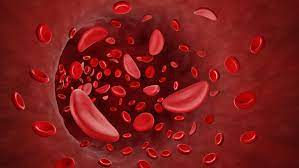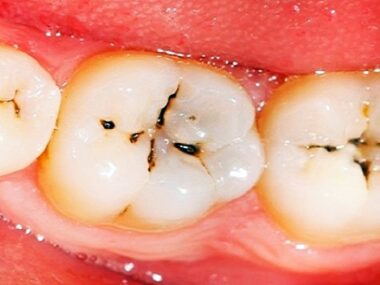Sickle cell disease (SCD) is a genetic dysfunction characterised by irregular haemoglobin molecules within the crimson blood cells. It impacts tens of millions of individuals worldwide, predominantly those of African descent, but in addition people from Mediterranean, Center Japanese, and South Asian backgrounds.
This complete exploration delves into the intricate aspects of sickle cell sickness, encompassing its genetic foundation, medical manifestations, obtainable therapies, and the profound impression it has on sufferers’ lives and their households.

Genetic Foundation of Sickle Cell Disease
Sickle cell illness is brought on by a mutation within the gene that encodes the beta-globin subunit of haemoglobin, a protein accountable for carrying oxygen within the blood.
This mutation results in the manufacturing of irregular haemoglobin often known as haemoglobin S (HbS), which causes crimson blood cells to grow to be inflexible and assume a attribute sickle form below sure situations, similar to low oxygen ranges or dehydration.
The inheritance of two copies of the mutated gene (HbSS) leads to probably the most extreme type of SCD, often known as sickle cell anaemia.
Scientific Manifestations
The medical manifestations of sickle cell illness differ in severity and may have an effect on a number of organ programs all through the physique. The hallmark symptom is a vaso-occlusive disaster, characterised by episodes of extreme ache as a result of obstruction of blood stream by sickled crimson blood cells.
Different frequent signs embrace fatigue, jaundice, anaemia, organ harm (e.g., to the spleen, kidneys, and lungs), and elevated susceptibility to infections. People with SCD can also expertise issues similar to acute chest syndrome, stroke, priapism, and leg ulcers, which might considerably affect their high quality of life and longevity.
Analysis and Screening
Diagnosing sickle cell illness usually includes a mix of medical analysis, laboratory exams, and genetic testing. New child screening packages have been instrumental in early detection and intervention, permitting for well timed administration and preventive measures to cut back the chance of issues.
Screening exams similar to haemoglobin electrophoresis or high-performance liquid chromatography (HPLC) can determine people with SCD or carriers of the sickle cell trait, facilitating genetic counselling and household planning selections.
Therapy Approaches
Whereas there is no such thing as a treatment for sickle cell illness, varied therapy modalities goal to alleviate signs, stop issues, and enhance sufferers’ high quality of life. Hydroxyurea, a drugs that will increase the manufacturing of fetal haemoglobin, has been proven to cut back the frequency of vaso-occlusive crises and hospitalizations in people with SCD.
Different therapeutic choices embrace blood transfusions to alleviate anaemia and issues similar to acute chest syndrome, in addition to bone marrow or stem cell transplantation, which might supply a possible treatment for choose sufferers.
Supportive Care and Illness Administration
Along with medical interventions, supportive care performs an important function in managing sickle cell illness and enhancing sufferers’ well-being. This encompasses measures similar to ache administration, hydration, dietary help, and vaccinations to forestall infections.
Common monitoring and screening for issues are important elements of illness administration, permitting healthcare suppliers to detect and tackle points early, thereby optimizing outcomes and minimizing long-term morbidity.
Psychosocial and Emotional Effect
Residing with sickle cell illness can have a profound psychosocial and emotional impression on sufferers and their households. Continual ache, frequent hospitalizations, and limitations in every day actions can result in emotions of frustration, nervousness, and melancholy.
Furthermore, the unpredictable nature of the illness and the fixed want for medical care can disrupt training, employment, and social relationships, contributing to social isolation and decreased high quality of life.
Offering complete psychosocial help, together with counselling, peer help teams, and academic sources, is crucial for addressing the holistic wants of people with SCD and selling resilience and coping methods.
Analysis and Advances in Therapy
Regardless of the challenges of sickle cell illness, vital strides have been made in understanding its pathophysiology and creating novel therapy approaches.
Advances in gene remedy, similar to gene enhancing applied sciences like CRISPR-Cas9, maintain promise for correcting the underlying genetic defect and doubtlessly providing a treatment for SCD.
Moreover, ongoing analysis efforts concentrate on creating focused therapies to forestall vaso-occlusive crises, mitigate issues, and enhance total outcomes for sufferers.
Advocacy and Public Well being Initiatives
Advocacy efforts are essential in elevating consciousness about sickle cell illness, advocating for entry to high quality care, and selling analysis funding and coverage initiatives. Nationwide and worldwide organizations, together with affected person advocacy teams and community-based organizations, work tirelessly to amplify the voices of people affected by SCD, tackle disparities in healthcare supply, and champion initiatives aimed toward bettering outcomes and decreasing the burden of illness.
In conclusion, sickle cell illness is a genetic dysfunction with far-reaching implications for sufferers, households, and healthcare programs. Whereas vital progress has been made in prognosis, therapy, and supportive care, challenges stay in making certain equitable entry to care, advancing analysis efforts, and addressing the multifaceted wants of people dwelling with SCD.
By fostering collaboration amongst stakeholders, investing in progressive therapies, and advocating for insurance policies that prioritize the well-being of sufferers, we will try in the direction of the future the place people with sickle cell illness can stay more healthy, extra fulfilling lives.










